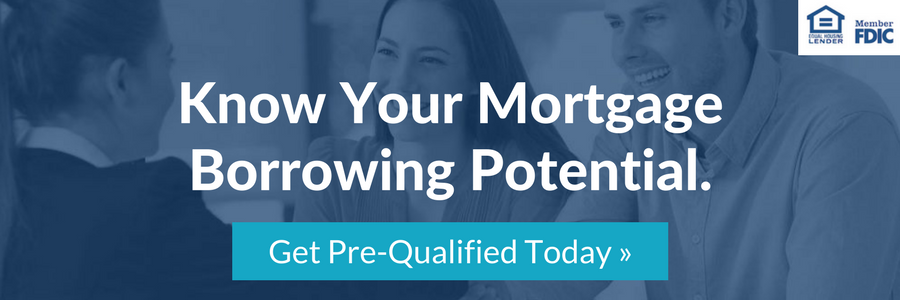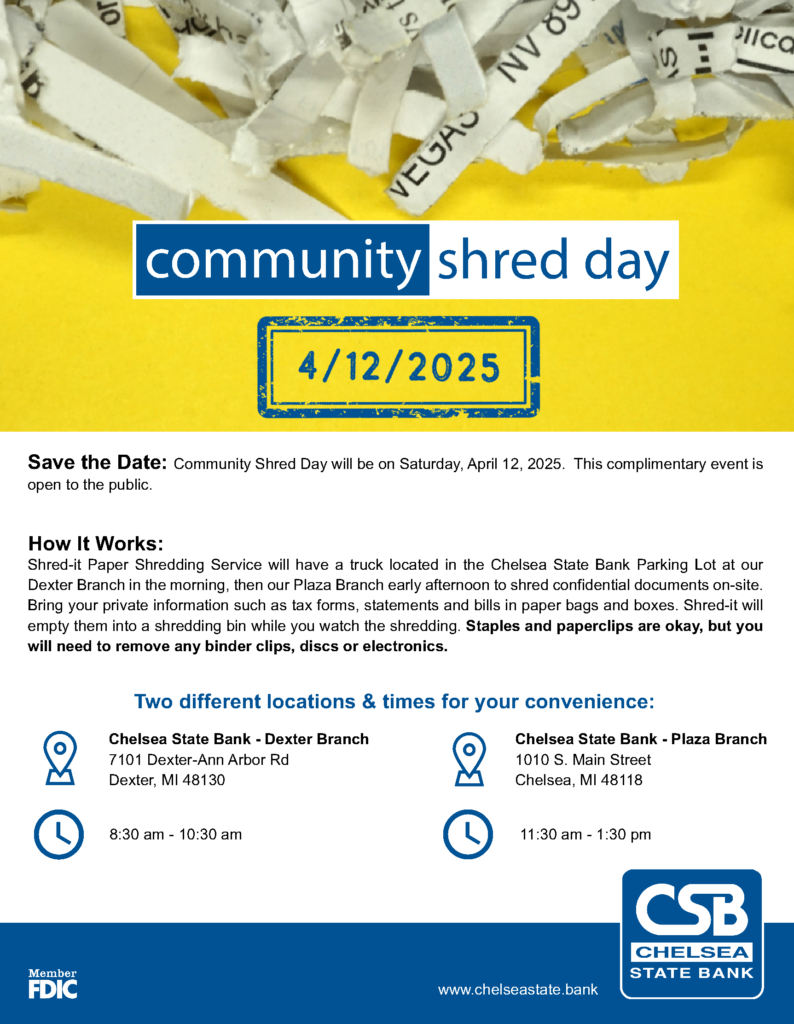 It’s not done until the paperwork is done. So true for a mortgage qualification process, too. Make sure you have the documents you need at the start to ensure that you get to final approval of your mortgage without a lot of hassles. Have it in-hand before talking to your community bank loan officer. At Chelsea State Bank you will need to bring:
It’s not done until the paperwork is done. So true for a mortgage qualification process, too. Make sure you have the documents you need at the start to ensure that you get to final approval of your mortgage without a lot of hassles. Have it in-hand before talking to your community bank loan officer. At Chelsea State Bank you will need to bring:
- Proof of income
- List of all debts
- List of all assets
First, anytime you want a loan, you need to show that you can pay it back. At Chelsea State Bank we will need to confirm that you have a steady income. To do that you will need to provide your previous year’s W-2 form, your most recent pay stub, and your latest tax returns.
Include employment history for at least two years that lists where you worked, addresses, your work duties, and income. If you receive commissions, bonuses, or are self-employed, you must verify two years of bonus, commission, or self-employed income received.
If self-employed, plan on providing more supporting documentation, too. Examples include profit and loss statements from your business or 1099 forms if you work on a contractual basis.
Money from other non-work-related sources must also be provided. For example, if you want child support or alimony to be considered you will have to provide a copy to support the income received. If you earn rental income from investment properties, provide a copy of the lease agreement.
Determining Your Debt Ratio For Mortgage Qualification
Second, you’ll have to put together a complete list of all debts. This includes credit card balances, student loans, car loans, alimony and child support payments or any other fixed debt obligations. The list must include a breakdown of balances and the minimum monthly payments for each account.
This information is used to determine your overall credit worthiness and can be a determining factor to qualify for the lowest rates on a mortgage. Use a debt-to-income ratio calculator which you can find online.
Know where you stand before you go see a loan officer. If you have a lot of outstanding debts, it might make sense to pay those down first before applying for a mortgage. No matter how much you’re earning, it can seriously impact your debt-to-income ratio, which is a crucial component to determining your overall credit worthiness.
Third, you will want to account for your assets, too. Put together a list of your assets that include bank statements, investment records, retirement accounts, real estate, auto titles, and any other investments that make up a large part of your financial picture.
Reviewing and knowing how your assets fit into the mortgage approval process will help you and the bank. The bank wants to be sure you have enough savings to weather any unexpected expenses after you close on the house. They may also want proof that you paid the down payment from your own account and not as a loan from someone else. If you received money towards the down payment as a gift, you may be required to provide documentation that declares it was a gift and not a loan.
Anything Else For A Mortgage Application?
Provide residence history for at least two years. If you’re a renter, your rent payment is needed. If you’re an owner, all mortgage, insurance and tax figures are needed for your primary residence and all other properties owned.
You may have to sign an IRS Form 4506-T, which allows your community bank to get a transcript of the tax return from the IRS. In some cases, the lender wants to see that what you declared to them matches exactly what you declared to the IRS. The IRS Form 4506-T serves to verify that all of the data on your W-2, 1099 or 1040 matches what you said on your loan application.
If you had a bankruptcy within the last several years, you may be asked for your bankruptcy discharge papers. In some cases, a bankruptcy can appear on your credit report for up to ten years. Even if you’ve been on sound financial footing since then, a lender will want to see that you’ve settled with your creditors.

The Buyer’s Edge at Chelsea State Bank is a mortgage pre-qualification request program. All pre-qualifications and mortgage loans are subject to approval of credit. Final loan approval is contingent on property appraisal, clearance of title and confirmation of current loan application information. Equal Housing Lender.



